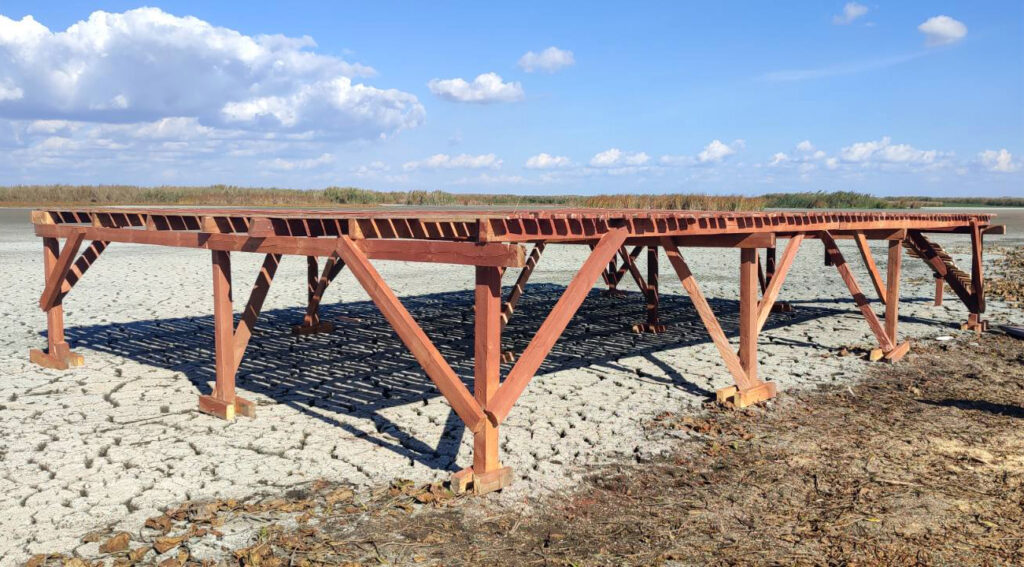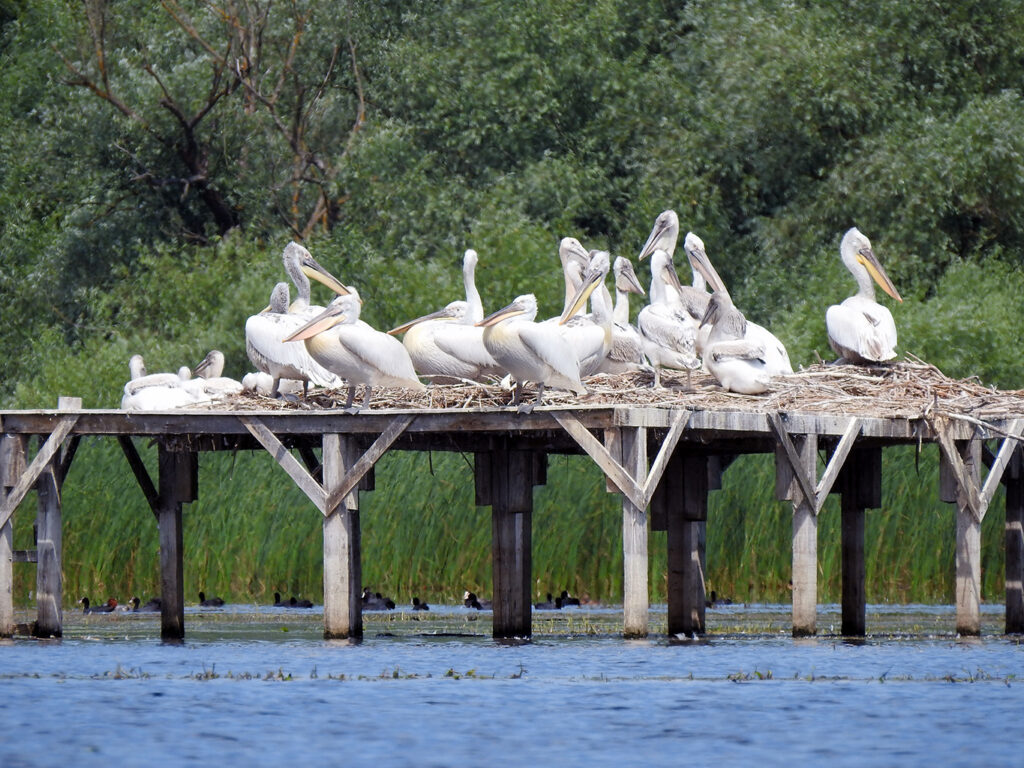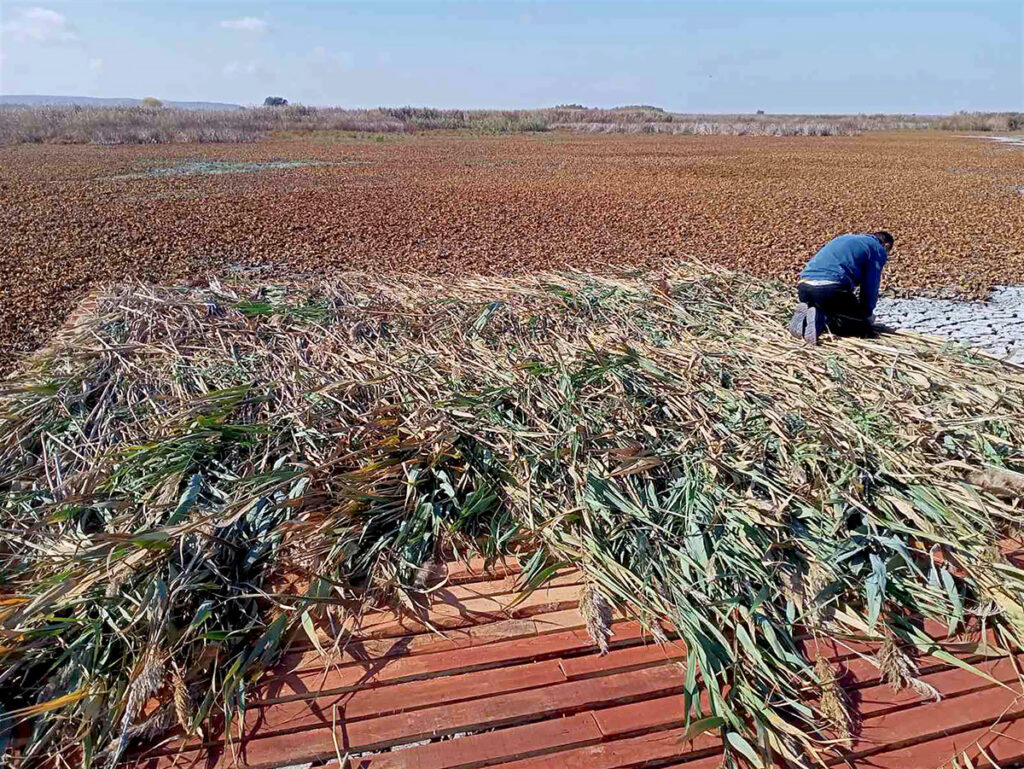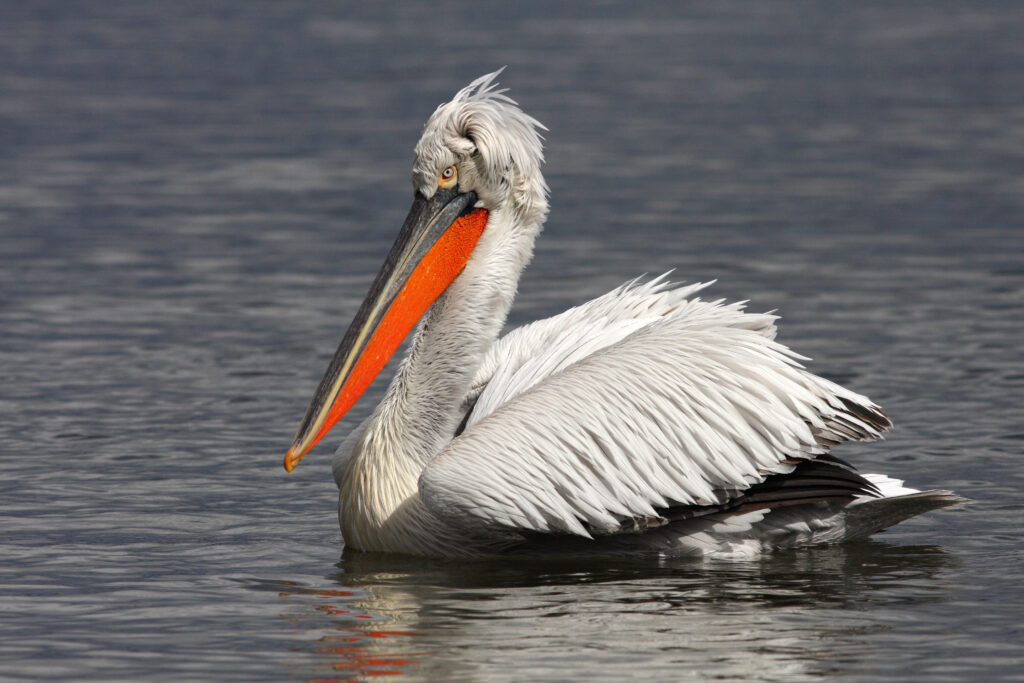Last week, the construction of an artificial nesting platform for the Dalmatian pelicans was completed on one of the Danube lakes on the south of Ukraine as part of the “Pelican Way Of LIFE” initiative. The Rewilding Ukraine team hopes that this season the flying giants will build their nests on it.

The 60 square meters stationary platform was built from wooden planks and beams and topped with reeds to make it more like a natural formation and more comfortable for the birds. The experience of using such platforms in other countries, for example in Bulgaria, shows that Dalmatian pelicans like to build their nests on these artificial islands, which are protected from predators and disturbance.
“We hope to see the first pelicans on our platform in winter. While, the white pelicans in Europe nest in one huge colony in Romania, the Dalmatian pelicans build their nests on different wetlands, from Greece to Ukraine. Unfortunately, not a single nest has been registered in our country for several years, so with the help of these platforms, we are trying to create proper conditions for them to reproduce. Last year, floating platforms were built in the outer delta. So together with this one, we already have two good opportunities for Dalmatian pelicans to start new nesting colonies in the Ukrainian part of the Danube delta,” says Oleg Dyakov, Rewilding officer at Rewilding Ukraine.

Do not disturb the pelicans!
The disturbance of birds on nests is one of the factors that negatively affect the population of these vulnerable giants. So, they look for remote areas surrounded by water to protect their chicks from predators and humans. Platforms are perceived by pelicans as islands covered with vegetation. In addition, some platforms are equipped with artificial realistic figures of Dalmatian pelicans to attract real birds.
“This year, the water level in the Danube and river lakes was extremely low, which made it possible to build a stationary platform in the shallow water of one of these lakes. The drying up of lakes is a natural process that happens once every decade and allows to compact the bottom of the lake and clean it. Next year, water and fish will return to the lake, if it has a natural connection with the river, and we will see a real flourishing of life here. To avoid vandalism and reduce possible disturbance to the birds, we do not name the exact location of the platform. Another platform should be built next year in another area of the Ukrainian Danube Delta,” adds Mykhailo Nesterenko, executive director of Rewilding Ukraine.

Vulnerable giant
The Dalmatian pelican is one of the largest birds in the world, with a wingspan of almost three meters and a weight of over 10 kg. To see a group of these majestic fish-eaters rising together and circling in the air is an unforgettable sight. So, this species is interesting to observe for many birdwatchers and just ordinary people. The regions where these giants live attract tourists from all over the world. So local communities benefit from being the pelicans’ neighbors.
The Dalmatian pelican is extremely vulnerable wherever it is found. This bird is included in the IUCN Red List in the category “Near Threatened”, as well as in the Red Book of Ukraine. In recent decades, the global population of the species has suffered drastic declines due to collisions with power lines, habitat loss, disturbance, bird flu, persecution by fishermen, and a lack of awareness among local communities.

The Pelican Way of Life initiative, which supported the building of the platform, helps to preserve and restore the Dalmatian pelican population in the Black Sea region and the Mediterranean. It focuses not only on the research of the species and practical measures for its conservation, but also on the popularization of knowledge about this majestic bird, which is the ambassador of healthy and well-connected wetlands. Only with the support of the local communities and a wide range of parties can rewilding measures be successful. The initiative, implemented in Greece, Bulgaria, Romania and Ukraine, is coordinated by Rewilding Europe and implemented with the financial support of the LIFE Program of the European Union and the Arcadia Foundation. In Ukraine, it is implemented by the organization Rewilding Ukraine and the Danube Biosphere Reserve with the support of local partners.